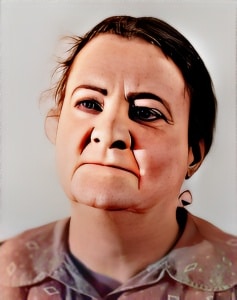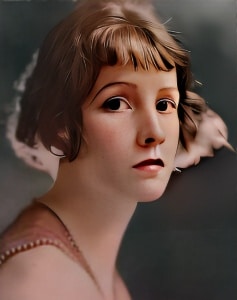 Aggie Herring (1876-1939) was an American actress who made a notable impact on the early years of American cinema and the theatrical stage.
Aggie Herring (1876-1939) was an American actress who made a notable impact on the early years of American cinema and the theatrical stage.
Her career spanned several decades, and she was known for her versatility as an actress, often portraying a wide range of characters. Her contributions to both silent films and the theater established her as a respected figure in the world of entertainment.
Born on February 4, 1876, in Bay City, Michigan, Aggie Herring entered the world of acting at a young age. Her career began in the theater, and she soon gained recognition for her talents as an actress. Her experience on the theatrical stage provided her with the foundation for her future success in both the theater and the emerging world of silent films.
Aggie Herring’s transition to silent films occurred during the early 20th century, as the motion picture industry was still in its formative years. Her theatrical experience made her a valuable asset to the world of cinema, where her acting skills, expressive face, and ability to convey emotions effectively were highly regarded.
In silent films, Aggie Herring portrayed a diverse array of characters, showcasing her ability to adapt to various roles. Her filmography included both dramatic and comedic characters, and her versatility as an actress allowed her to immerse herself in her on-screen personas, effectively conveying a wide range of emotions.
Herring’s work on the silent screen was marked by her ability to breathe life into her characters. Her performances resonated with audiences, and she was appreciated for her expressive and captivating portrayals. Her work on both the theatrical stage and in silent films underlined her versatility as an actress.
One of Aggie Herring’s notable film roles was in the 1915 silent drama “The Wild Goose.” In this film, she played a character named Mrs. Waltham, contributing to the film’s narrative with her skillful performance. Her ability to convey depth and authenticity in her characters, combined with her distinctive screen presence, solidified her reputation as a respected figure in the silent film industry.
Aggie Herring’s impact on early American cinema extended to her work on stage as well. She continued to perform in various theatrical productions, further showcasing her versatility and range as an actress. Her dedication to both the theater and silent films emphasized her enduring commitment to the world of entertainment.
While the specifics of Aggie Herring’s later career are less documented, her early work on both the theatrical stage and in silent films remains an important part of the history of American cinema and the theater. Her ability to seamlessly transition between these mediums, along with her talent for embodying diverse characters, made her an influential figure in the entertainment industry during a transformative period.
Aggie Herring’s contributions to early American cinema and the theatrical stage, characterized by her adaptability and expressive performances, continue to be celebrated as an integral part of cinematic and theatrical history. Her legacy as a versatile actress endures, leaving an indelible mark on the world of entertainment. Aggie Herring passed away on November 6, 1939, but her impact on the early years of American cinema remains a testament to her talents and versatility as an actress.
Loading live eBay listings...




